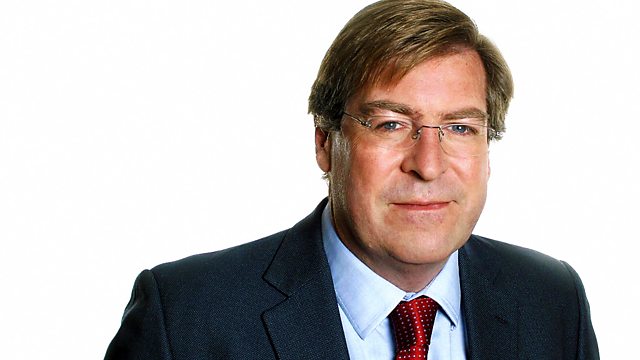
Foucault and Chomsky
Edward Stourton revisits broadcast debates from the archives. Two philosophers- Michel Foucault and Noam Chomsky - discuss the nature of power, oppression and civil disobedience.
Edward Stourton continues to revisit passionate broadcast debates from the archives - exploring the ideas, the great minds behind them and echoes of the arguments in present-day politics.
In this episode, two thinkers discuss the nature of power and oppression in contemporary society. This rare footage was recorded on Dutch television in 1971 with a backdrop of social unrest the world over. Michel Foucault, the French philosopher, had emerged in his own country as a militant leader after the 1968 student riots. Across the Atlantic, amid growing civil unrest, the American intellectual Noam Chomsky was central to the anti-Vietnam War movement.
Both men of the left, but with two distinct ideas about how power is wielded. Chomsky saw groups of elites in charge - the military, the economic and multinational elites. But also an intellectual elite that feeds ideas into the public domain and thus controls the flow if ideas and how people think. Foucault, however, thought the mechanisms behind oppression were more deceptive. Social institutions, such as universities, psychiatric hospitals and prisons, subtly imposed restrictions on knowledge and the way people behave. And if a theory can be put into practice, what of civil disobedience and how to justify it?
In the studio dissecting the debate are David Macey, Professor in Translation at Nottingham University, who wrote a biography of Foucault, and John Taylor, Professor of Politics at London's South Bank University.
Producer: Dominic Byrne
A Blakeway production for Βι¶ΉΤΌΕΔ Radio 4.
Last on
More episodes
Previous
Next
You are at the last episode
Broadcast
- Fri 17 Dec 2010 15:45Βι¶ΉΤΌΕΔ Radio 4
